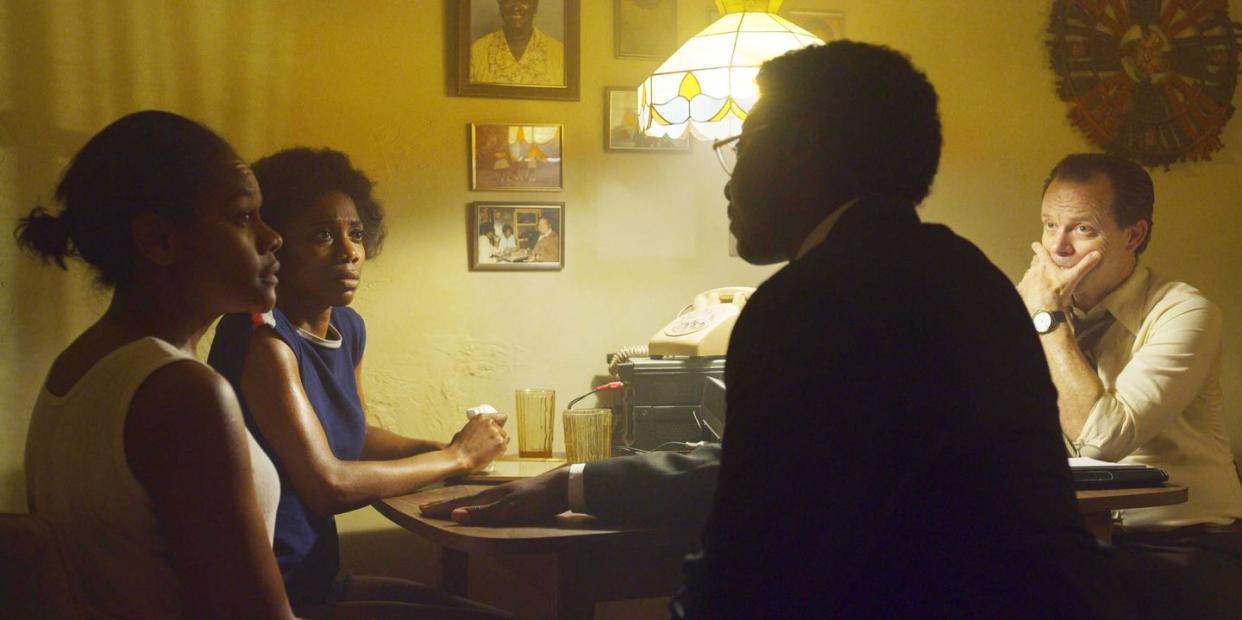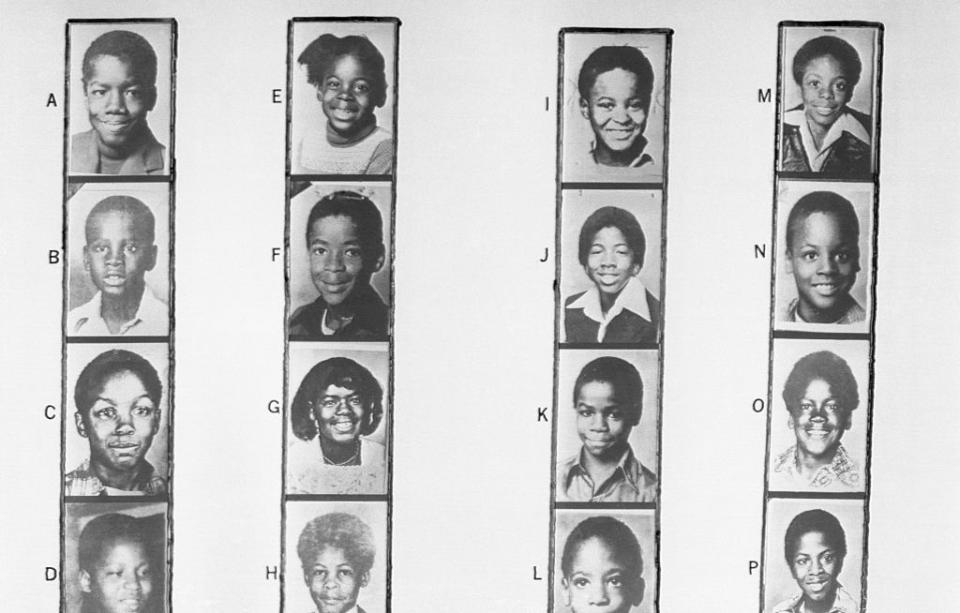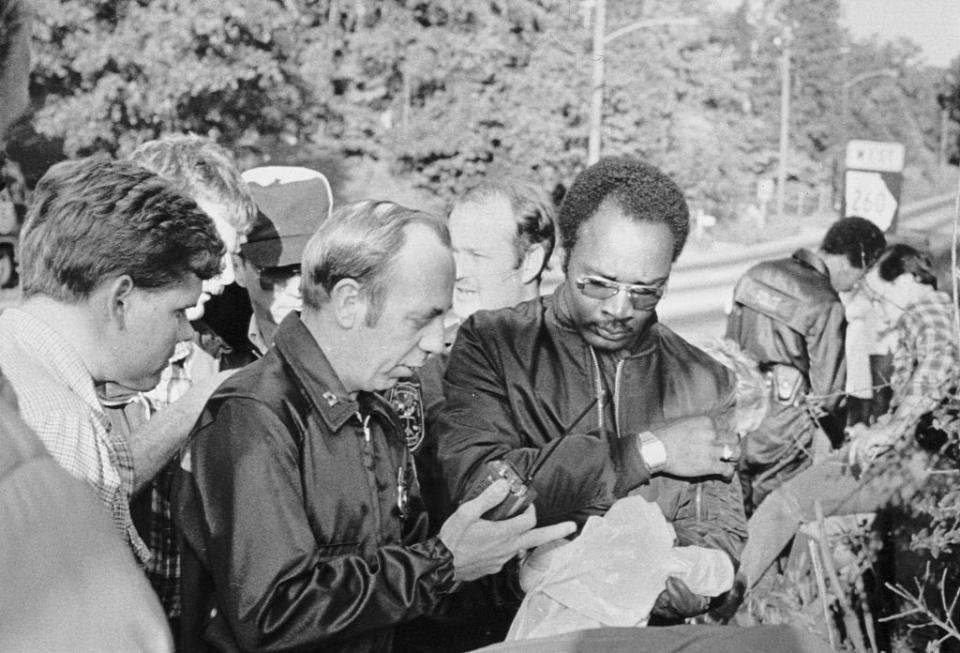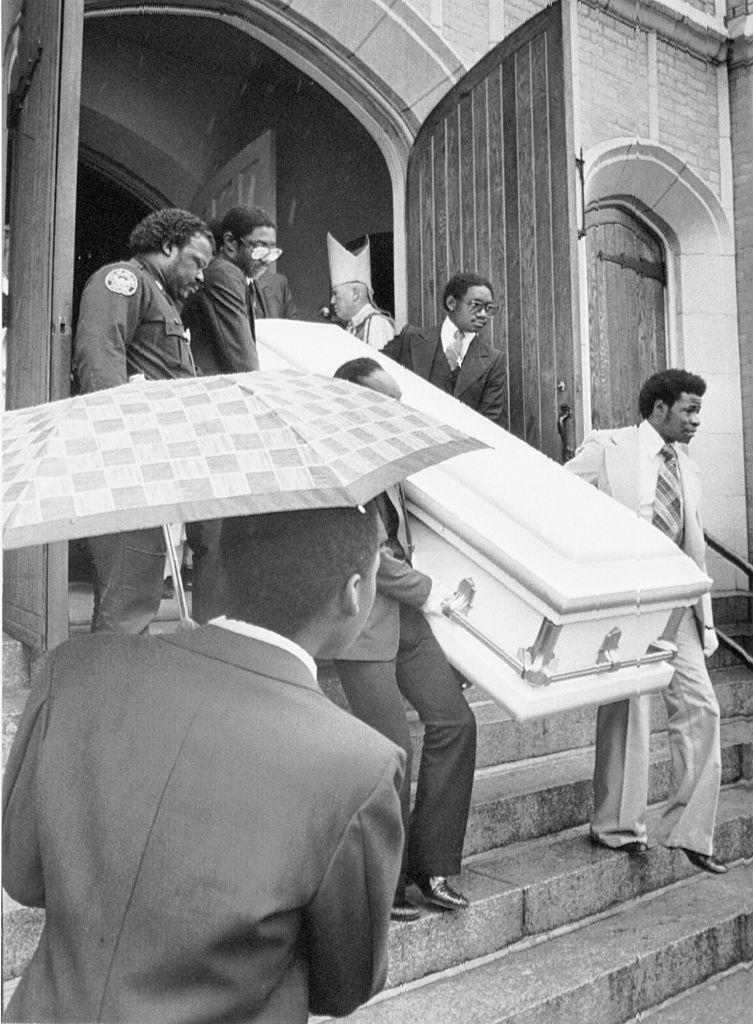A Mother of an Atlanta Child Murders Victim Wants 'Mindhunter' to Compensate the Families

Forty years have passed since Atlanta’s children started disappearing, and still almost nothing is known for certain about the 29 killings that became known as the Atlanta Child Murders. Cases were opened and then closed, unceremoniously, leaving many wondering: Who killed more than 20 children in Georgia?
Now, as Mindhunter Season 2 reexamines the crimes through a fictional lens, the victims' families still mourn—and still want answers.
When Sheila Balthazar, 62 and still living in Atlanta, watched the trailer for Mindhunter, she was plunged back into the most painful time of her life. Her stepson, Patrick Balthazar, was the 20th child to disappear, at age 12. The directors, she told WH in a recent phone interview, effectively captured the cloud of terror that hung over her neighborhood as boy after boy went missing in broad daylight.
As one of a few parents still alive, Balthazar feels an obligation to continue to speak out. The parents were given so few answers, she said. It’s been impossible to get closure. She doesn’t even know what that would look like.
The Atlanta Child Murders tormented parents for two years.
From 1979 to 1981, residents of Georgia's capital city were haunted by the disappearances and deaths of more than two dozen children. The kids, mostly black boys, ranged in age from 7 to 17. Six adults (ages 20 to 28) were also murdered in the same time frame.
First, a 14-year-old boy vanished. Days later, another teenager was reported missing. Police soon learned that both boys were dead, according to FBI files. The snatchings terrorized the metropolis, said Balthazar.
"They just kept finding bodies," she recalls. "It could’ve been anyone’s child."

The FBI only became involved at the request of local law enforcement.
After 7-year-old Latonya Wilson was taken from her bedroom on June 22, 1980, investigators wondered if federal kidnapping statutes had been violated.
The crimes didn’t fall under federal law, according to an FBI case study published by Susan Lloyd, but Special Agent in Charge John Glover—the first black man to lead an FBI field office—continued to offer support.
Like a steady pulse, children kept disappearing throughout the city and police kept finding their bodies, sometimes months later—tossed in dumpsters, under bridges, and behind houses.
By November 1980, the FBI committed more than two dozen agents and other workers to the case full-time, the case study reported.

"When the first murder associated with the Atlanta Child Murders case occurred in July 1979, it made little impact on the news cycle of the bustling city known as the Hub of the South. By the time the body of the last victim was found in late May 1981, news about the case dominated not only local headlines but international headlines as well," Lloyd wrote in the study. "Someone was killing Atlanta’s African-American youth."
Most of the victims were killed by strangulation or asphyxiation, but a few were shot, according to the FBI.
A loud splash lead to a suspect: Wayne Williams.
After 22 months of investigation, an early morning splash in the Chattahoochee River led police to Wayne Williams, a 23-year-old freelance photographer who covered some of the crime scenes before his arrest, according to The Atlanta Journal-Constitution.
Just before 3 a.m. on May 22, 1981, police and FBI stopped Williams in his car.
When police asked him why he was stopped, he said, "It must be about those boys," according to the case study.
Williams denied dropping anything into the river, but two days later, the body of 27-year-old Nathaniel Cater was found in the water.
Because of the condition of Cater’s body—he was naked and had been asphyxiated—police zeroed in on Williams as a suspect in the recent slayings. At trial, prosecutors said Williams was responsible for the murder of Cater and Jimmy Ray Payne, 21, both among the last of the young black people killed over a harrowing 22 months in the South, according to AJC.
After Williams’s conviction in 1982, police closed 22 of the unsolved child killings. All 29 cases were reopened in 2019, as Williams currently serves two life sentences and maintains his innocence.
Because he was never tried for the other 22 murders, over the persisting decades, parents were left to wonder: Who killed my child?
Justice still eludes Atlanta.
Balthazar is sick of journalists calling her every two or three days to discuss the murder of her stepson Patrick.
Though decades have passed, the questions remain the same: What was Patrick like? What was he doing the night he died? Were you afraid? She recites the same answers.
"Ask me a thousand times" [to describe Patrick], Balthazar said during our phone call. "It’s always the same thing. It could be the same story turned over again."
"You feel like the world needs to know what happened," she continued. "But when it really all boils down to it, I’ll never be able to say enough."
Balthazar, like many parents, joined in the search for Atlanta’s murdered and missing children far before tragedy consumed her own home. She warned Patrick and her own son to stay indoors. They didn’t.
Patrick, in particular, was enterprising, she said. He’d hang out in the K-Mart parking lot with a bucket and rag, offering to wash shoppers' cars for a few dollars. He rode the bicycle he got for Christmas that year with pride, wiping it down and waxing it daily.
"You’d think it was a Cadillac," Balthazar said laughing, an unusual lightness in her voice. "Whatever he did have, he really took care of it. He had the mind of a teenager. He was just like his daddy. He loved to work and always wanted to do something."
Everything was good, Balthazar explained. "Until. Until," she said, trailing off.
Patrick vanished near a pay phone where he was standing with a friend on February 6, 1981.
A week later, police found his body strangled. Balthazar and her husband, Patrick’s father, watched as his body was pulled from the woods on live television.
"It was just devastating," she said. "I never felt nothing like that in my life."

As a stepparent, Balthazar said she feels like she lost both her children—Patrick and her biological son. With all of the attention focused on the murder and the family’s grief, her relationship with her own child grew strained. Even 40 years later, they barely speak.
She wishes the filmmakers of Mindhunter—as well as writers of other recent articles and podcasts about the tragedy—would think critically about the victims’ families. It would be nice for a producer to reach out and talk to her before she sees her story played out on the television, she said.
The families should also be compensated by Netflix, she said. The streaming service did not respond to a request for comment for this article.
"It’s 40 years later and we’re still being played and taken advantage of as parents," Balthazar said. "People won’t let it rest."
You Might Also Like

